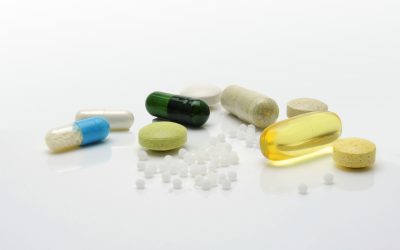The Story on PCOS
The story about PCOS is a little complicated because there are so many different factors at play. Despite the facts and rumors you have heard, some dietary and lifestyle modifications can make a huge difference in the symptoms and progression of this condition.
What is PCOS? Long Story Short…
PCOS typically involves hormone imbalance, insulin resistance, low-grade inflammation, impaired metabolism, and sometimes issues with coagulation. Because there are many imbalances happening in this condition, signs and symptoms can be easy to detect, but the range of signs and symptoms can also vary greatly from person to person. Because of its obvious features, self- misdiagnosis is common as well.
What are the Most Common Symptoms of PCOS?
- Abnormal hair growth
- Unintentional weight gain
- Acne
- Irregular periods
- Lack of ovulation
- Infertility
Food is the Foundation of Health
Foods to Include
Greens (choose organic and non-GMO if possible): Leafy greens like spinach, kale, and chards are great to incorporate into the diet.
Foods low on the glycemic index: What does this mean? This category includes foods that don’t affect insulin levels as much. Foods that have high sugar content, like candy, bread, and pasta raise insulin levels after consumption. If you do crave sweets or need to substitute your bread and pasta, try the following:
Fresh in-season fruits: Nature’s candy! If you have a sweet tooth, replace your candy and other sweets with berries, apples, figs, and many many more. Fruits contain fructose (sugar), but fruit also contains phytonutrients that are invaluable to our health. Load up on in-season fruits, and try to eat organic whenever you can.
Legumes: If you love pasta, bread, and rice, then you’re in luck. They do cause fluctuations in insulin, but they can easily be replaced with legumes like lentils and beans. Soak legumes and grains for at least 12hrs before cooking, to kick-start the digestive process and maximize our body’s ability to absorb all the nutrients.
Healthy fat (e.g. coconut oil, olive oil, MTC oil, avocado, nuts): There are lots of options to fulfill our healthy fat intake. Cooking with coconut oil and olive oil on low heat is ideal, to minimize the negative effects of certain chemicals produced in the process3. Nuts like macadamia, walnuts, and almonds are great options. Try to avoid peanuts, as they cause inflammation in the body. Salmon and free-range organic chicken breasts are also great options for a good source of fat and protein.
High fiber foods: If you’re consuming lots of greens, then you’re already halfway there! Fiber allows the body to flush out toxins on schedule, so constipation doesn’t occur. The longer waste sits in our gut, the more toxins and hormones get reabsorbed. And be sure to drink lots of water to help your gut move everything more smoothly.
Plant-based proteins: Lentils, sprouts, quinoa, raw seeds and nuts (avoid peanuts). There are lots of choices these days. Look for a protein that is clean and lean. Approximately 30% of the daily calories should be from lean protein. Examples of these proteins are:
- Lentils
- Soy
- Flaxseed
- Almonds
- Walnuts
Yes, soy is an option. In moderation, soy decreases testosterone levels2 and bad fats in the body, as well as regulating female reproductive hormones1.
Exchange salt for herbs and spices: Decrease salt intake to 1tsp/ day, and add in herbs and spices (e.g. turmeric, cumin, garlic, ginger, cinnamon, etc.).
Lots of water (at least 2L/ day): Flavor with lemon, cucumber or fresh berries if you want a flavor boost.
Foods to Avoid
- Foods with high glycemic index e.g. bread
- Dairy
- Processed foods
- Red meat
- Caffeine and alcohol
- Smoking
- Smoked or foods cooked under high heat
Slow cooking with high humidity (avoiding high heat cooking like frying is recommended)3. For simplicity purposes, a Mediterranean diet is a great standard diet to follow.
Your Daily Diet Breakdown
Your daily breakdown of macronutrients (carbohydrates, protein, and fat) should look as follows:
20% of calories from protein
50% from carbohydrates
30% from fat
Important Lifestyle Factors to Consider
Exercise: Exercise is important for all aspects of health. It is important for hormone processing, heart health, weight management, insulin regulation, mental health, and many more.
Intermittent fasting/calorie restriction: Both of these have been shown to increase insulin sensitivity4 , which plays a huge part in women with PCOS. Intermittent fasting may sound daunting, but it is definitely flexible and doable. This usually involves fasting for 16-hours/ day, and you can pick when you want to start/stop eating. For example, eating at 10 am means fasting at 6 pm. Start off with 2-3 fasting days a week and progress to every day if that’s doable for you.
What About Supplements?
Omega 3: Promotes an increase in good fats, reduce inflammation, and brain health.
Vitamin D3 (100 µg/d): Based on a correlation found by He et al. and many recent studies, a healthy vitamin D level is important in healthy insulin production and improvements in insulin sensitivity.
Psyllium husks: Promotes healthy bowel movements and is a great fiber supplement. Be sure to drink lots of water with it.
Myoinositol: Supports ovulation and improves egg quality by increasing insulin sensitivity.
CoQ10: Works well with Myoinositol to support egg quality.
Chromium: Promotes insulin metabolism.
Probiotics: Multi-strained probiotics support digestive health to ensure regular bowel movements.
NAC: An antioxidant, improves insulin sensitivity, and plays a part in regulating periods.
A Day in the Life of a Healthy PCOS Eater
Breakfast: Smoothie- vegan protein powder*, frozen berries, kale, avocado, and flax seeds
Snack: Apple slices with almond butter
Lunch: Pear salad with fresh greens and free- range hormone free chicken breasts dressed with infused olive oil and balsamic vinegar
Snack: Green juice- kale, celery, ginger, and green apple
Dinner: Skillet salmon in olive oil, with quinoa, steamed asparagus, collard greens, and mushroom
*Vegan protein power: Choose organic pea or hemp protein, with a full protein profile
Need Help With PCOS?
We put food into our body every day. We can either choose health or continue to fuel whatever diseased conditions our body is already going through. A healthy diet consisting of healthy fats, high fiber, lots of greens, and a conscientious lifestyle is an important part of the PCOS healing process. Diet and lifestyle modifications are the foundation of our health, and we have the opportunity to make a difference in our health every day. Combining a healthy diet plan with regular exercise, proper supplementation, and other small lifestyle modifications, PCOS symptoms and progressions are definitely manageable. If you would like help managing PCOS, at Awaken Life Dr. Priya Prakash is here and happy to help!
With love and in health,
Priya
References
- Khani, B., Mehrabian, F., Khalesi, E. and Eshraghi, A. (2011). Effect of soy phytoestrogen on metabolic and hormonal disturbance of women with polycystic ovary syndrome. Journal of Research in Medical Sciences, 16(3), pp.297-302.
- Pino, A., Valladares, L., Palma, M., Mancilla, A., Yáñez, M. and Albala, C. (2000). Dietary Isoflavones Affect Sex Hormone-Binding Globulin Levels in Postmenopausal Women1. The Journal of Clinical Endocrinology & Metabolism, 85(8), pp.2797-2800.
- Diamanti-Kandarakis, E., Piperi, C., Kalofoutis, A. and Creatsas, G. (2005). Increased levels of serum advanced glycation end-products in women with polycystic ovary syndrome. Clinical Endocrinology, [online] 62(1), pp.37-43.
- Fung, J. and Moore, J. (2016). The complete guide to fasting. Las Vegas: Victory Belt Publishing, pp.137-139.
I want to help you get there. The key to your fertility lies within you.
Let's Awaken it!
More Reading
Naturopathic Medicine in Fertility
Whether you are just starting to try to get pregnant, struggling with getting pregnant or suffering from recurrent miscarriages, a fertility naturopathic doctor can help you along your fertility journey. Naturopathic doctors are trained healthcare professionals with...
The Role of Melatonin in Fertility
Most of us have heard about melatonin in the context of sleep, as a supplement that can impact our circadian rhythm. However, this hormone also plays an important role in female fertility. What is Melatonin? Melatonin is a hormone made by the pineal gland in...
Simple Tips to Improve Your Chances of Conceiving
It’s easy to get caught up in the minor details of what we could be doing better when trying to get pregnant. This can lead to constant thoughts around the effects that our daily activities have on our chances. This self-criticism can feel overwhelming and...




Share This
Share this post with your friends!